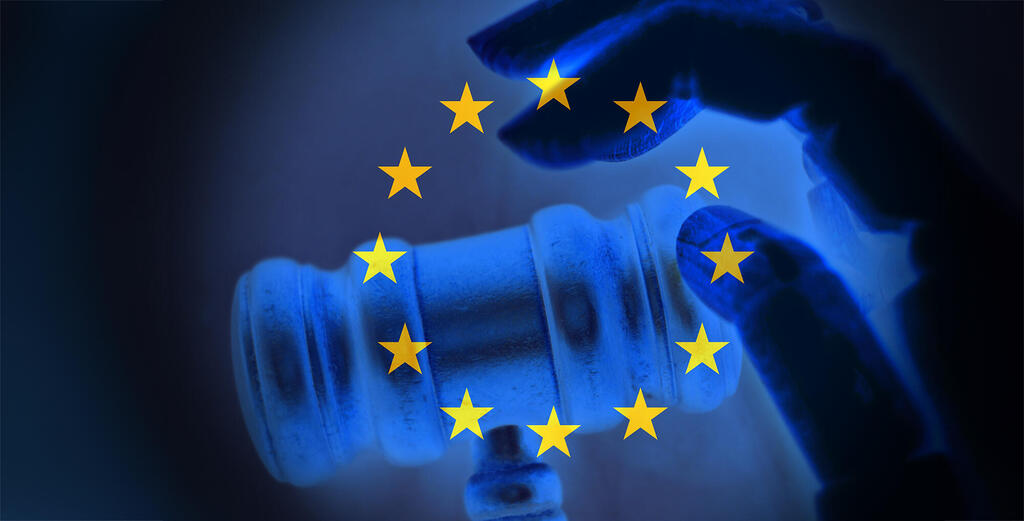
Europe’s regulation-heavy reputation hides big opportunities for Israeli startups
While Israeli founders often look to the U.S., Europe’s evolving ecosystem is creating new possibilities. The continent’s rush to regulate innovation is making it a key player in the future of tech.
Europe has had a hard time battling its recent reputation as a continent that generally lacks innovation and growth. The memes have written themselves: as the USA releases ChatGPT and China counters with DeepSeek, the EU has banned plastic straws and glued caps to their soda bottles.
It is no wonder why Startup Nation pines over North America instead of Europe.
“Historically Europe has been a difficult market because it’s really fragmented with different languages, but mostly fragmented because of regulation,” said Thomas Visan, Partner at Sienna Venture Capital. “The fact that Europe has been lagging behind the U.S. and China for quite some time, they are now trying to push a lot of things to facilitate mostly the way to work in Europe.”
3 View gallery


The EU is known for its strong regulations, often stifling tech innovation
(Photo: RaffMaster/Shutterstock)
Sienna VC operates out of Europe but has specific funds dedicated to Israeli tech at the early stage. Typically, once companies reach $3-10 million ARR from initial expansion overseas, the VC helps steer portfolio companies toward the continent. Its Startup Nation Fund has to date been involved in almost 50 deals in Israel with a target of around $250 million.
“I think it's a great opportunity, definitely,” he continued. “It's better to find people to partner with to help you get access to the right people because it's also a system where you need to have access to the right key decision people in the companies to make it work. But I think it's a market that should be addressed.”
While Europe may appear as a difficult market due to strong regulations and slower innovation, Startup Nation may be wise to consider it for business expansion. The continent has shown a growing demand for deeptech, AI, and cybersecurity solutions, and its increased scrutiny of big tech is keeping American monopolies in check from data overreach. Europe can present significant opportunities for startups—especially those prepared to navigate compliance frameworks like GDPR and others.
The EU’s innovation pace is well-known, and perhaps unappealing to those who want to ‘move fast and break things’. Its rush to regulate emerging technologies, such as GDPR for privacy protections and the EU AI Act to curb unregulated artificial intelligence and assess its risks, is only made more complex by the fragmentation of languages, cultures, and sometimes currencies if countries are not part of the Eurozone. Regulation propositions often face block attempts by lobbyists from Meta or Alphabet but efforts are usually in vain, and mechanisms to slow the pace of innovation are ultimately passed by the European Commission.
However, this isn’t to say the continent isn’t changing its ways. “Europe woke up one morning and discovered that they are far behind the US,” said Eran Westman, Managing Partner at Planven. The Swiss venture capital fund has invested in Israeli companies, including Via, TechSee, Ibex, and others. It manages $300 million across three funds that specialize in relatively early-stage investments, particularly in companies with initial revenue streams in sectors such as cybersecurity and medicine. Typically 30-40% of revenues from its Israeli tech portfolio companies are generated in the European market.
The sentiment of lagging innovation was confirmed by The Draghi Report on EU competitiveness authorized in 2024 by the Commission itself. The bloc has acknowledged it needs to start creating, especially as it competes against the US and China. Specifically, it calls for a collective European response to maintain its economic model and secure strategic independence in the global landscape. It emphasizes the necessity of significant policy reforms, increased innovation, strategic investments, and a unified approach to security and sustainability.
There are ways it can do this. First is efforts like Horizon Europe, the EU’s funding program for research and innovation which carries a budget of around €95.5 billion ($99.6 billion) for 2021-2027, or Israel-EU trade agreements, which entered into force in 2000. Another can be in the partnerships it forges with companies and VCs in and around the continent to help bolster innovation and growth.
“It's good for Israeli companies to have a European VC that is supportive on that side, and presenting additional opportunities that you probably wouldn't think of with some strategic access to corporates in Europe and key decision-makers when it comes to regulations, and local market expertise,” added Elle Taitou Spruch, Planven’s Senior Investment Associate. “Because at the end, we really see that there is interest from both sides and it’s a shame to give up on this untapped market.”
This month also saw Europe host the AI Action Summit, which saw countries ‘ensure the development of trusted, safe, and secure AI’ and promising to cut back on some regulations to make it easier for the technology to flourish in the region. Held at the Grand Palais traditionally used as the venue for the Chanel fashion show, “it is now representing tech, which I think says something about where France wants to be,” Taitou Spruch said.
The increasing scrutiny of American tech giants across the continent has created gaps in the market for smaller and more adaptable players. This opportunity can be ripe for Israeli entrepreneurs who not only have hands-on experience in the cybersecurity space but who are also known for their execution, resilience, and technological edge. In turn, working with a European VC can help with collaboration and partnerships.
While Europe presents regulatory challenges, it also offers unique advantages in funding, demand, and market gaps left by big tech. It can also rely on its budding network of growing ecosystems across several countries, like Paris, Barcelona, Zurich, and Berlin.
“In terms of education, university, and research, Europe has a very strong foundation, there,” added Marc Greuter General Partner at Planven. “I think in terms of the talent pool, this is a fantastic foundation for what is going to come in the coming years… US companies are setting up their R&D dedicated offices in Zurich and others, which is something that in Tel Aviv has already existed for a much longer time. But I think this is extremely important for the ecosystem. I think the importance of how these people who come from top universities work for top software companies and go out of top software companies to build their own thing is a very important piece of the evolution of the ecosystem.”
Israeli startups that embrace compliance and local adaptation can position themselves as leaders in an evolving European tech landscape, one that is aware of the challenges it needs to overcome in shifting the discussion from regulation to innovation. GDPR and other regulations were seen as restricting when first enacted, but their existence has led to increased restrictions across the U.S. in the form of CCPA or others. With its AI Act coming into force, Europe will once again lead the way in internet compliance and safety for users leaving large American companies no choice but to catch up.
Somewhat ironically, its quick pace to regulate in the short term is making the bloc an innovative player in the long term. Startup Nation would be wise to take note.















